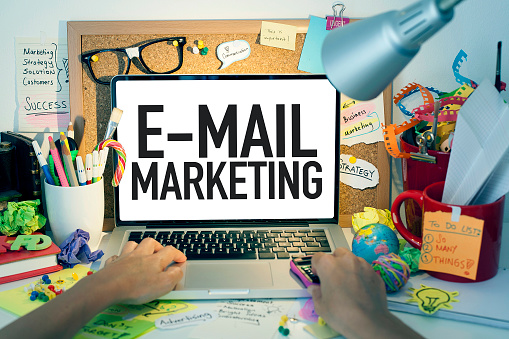Although it may not receive the press coverage it did a decade ago, email remains a potent advertising tool. Businesses of every size successfully use it to boost sales throughout the year. You can maximize the results by following these tips:
Gaining Subscribers
1. Think about holding a contest with a prize that would appeal to potential customers. For example, an office supply company could give website visitors the chance to win a laser printer. This creates an opportunity to collect email addresses for a newsletter.
2. Place a subscription form on your website’s homepage. You’ll probably retain subscribers for a longer period of time if they want information rather than a chance to win something. Be sure to promise content that directly benefits readers, such as coupon codes.
Optimization
3. Don’t overlook tablet or smartphone users. People view almost 50 percent of promotional email on this equipment, according to SmartInsights. Try to simplify messages so that users may easily access them on almost any computing device.
4. If you use multiple advertising methods, integrate them with your email campaigns. For instance, a director at Constant Contactsuggested: “If you’re running a Facebook contest, increase the number of people participating by notifying your email subscriber list.”
5. Cut marketing expenses and increase sales by trading ad space with another firm. A pasta manufacturer and a sauce company could cooperate by placing ads in each other’s newsletters. This only works when both businesses sell different but complementary products, such as:
- Stereos and music CDs
- Used cars and new tires
- Books and bookcases
6. Personalization has the potential to greatly improve email response rates and prevent spam accusations. You can easily accomplish this by adding a person’s name to the title of a message. For even better results, customize the content based on previous purchases.
7. Avoid sending excessively promotional messages. Supply readers with genuinely useful tips, information and news. Help them make the most of products they’ve bought in the past. Consider providing some behind-the-scenes insights into how your company operates.
Frequency
8. Don’t send too many or too few messages. If you wait several months before contacting people, they might forget that they signed up. Users may report the email as spam. On the other hand, various surveys have revealed that most readers don’t want more than one message per week.
9. Test different email quantities, lengths, times and styles. Keep track of the results to see what actually works. Marketing advice articles can help you decide when and how often to send messages, but every target audience is different.
Avoiding Spam
10. Always confirm new addresses, and avoid buying questionable mailing lists. Use validation tools that automatically identify suspicious addresses. Major email providers may block all of your messages if people report them as spam or rarely open them.
11. Make it easy to unsubscribe, and verify that the link or form really works. Some people just want fewer messages. Consider giving them the opportunity to receive a monthly newsletter rather than completely unsubscribing. You could also identify problems by offering an optional feedback form.
12. If you don’t have many subscribers, think about purchasing ads in established newsletters on relevant topics. Remember to perform thorough research beforehand. Discover how a specific newsletter gains subscribers, and see if any advertisers have publicized details about their results.

When you consistently apply several of these tips, you will gain repeat customers at little expense. Many small and mid-sized firms trust {company} to inform them about today’s most important IT news and advice. To learn more, please contact {email} or dial {phone} today.



